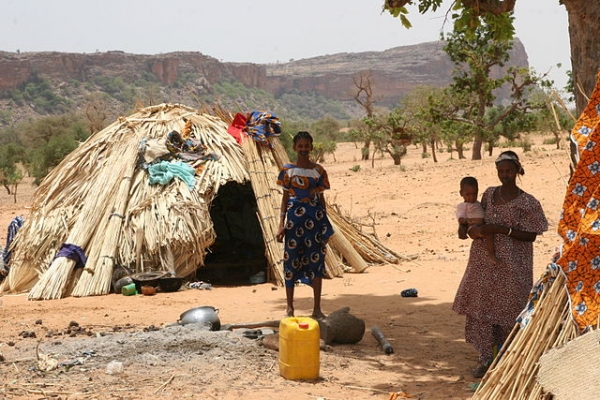
Suspected Fulani Muslim herdsmen attacked a Christian community in northern Nigerian state of Kaduna, killing two people, and injuring several others, according to a report by World Watch Monitor.
Fully armed herdsmen attacked the village of Ninte in the early hours of morning, and killed two people, and injured many others including women and children.
People from Ninte community had to flee for their lives, and took refuge in other nearby communities.
Church leaders in neighboring locality of Kafanchan have set up a temporary place for people harassed by militancy.
Joseph Bagobiri, Catholic bishop of Kafanchan, raised a plea for "a global fund to help in the meaningful rehabilitation of victims, to ensure that both land and property of Christians and other vulnerable minorities are returned to them unfailingly."
Bagobiri had attended a UN conference in New York, where he told the world leaders that an estimated 11,500 have been killed between 2006 and 2014 in Islamist attacks across the country, and some 13,000 churches were destroyed. Over 1.3 million people were displaced due to violence perpetrated by the militants.
A local aid worker told World Watch Monitor that the oppression by Fulani tribes is similar to Boko Haram in the northeastern part of the country, but it has not yet been widely reported by international media.
The episodes of Fulani cattle herders attacking mostly Christian farmers are mostly viewed as an economic struggle, but it has religious undertones, according to WWM.
"Religiously-related violence has led to more deaths in northern Nigeria than have Boko Haram attacks," said commission Chairwoman Katrina Lantos Swett in April 2013.
Fulani attacks are more brutal than Boko Haram. The terrorist group separates its victims, men from women and children who are generally spared. But Fulani herdsmen are notorious for killing everyone in their path,hacking and burning babies, and slashing bellies of pregnant women.
They have public legitimacy and are not considered a terrorist organization, and move about freely with their arms, and often release press statements and file court cases justifying their massacres. After the infamous Agatu massacre, they claimed that 10,000 of their cows were killed by Christians, but an investigative team found no dead cows, and no one was implicated.
The Fulani tribe is the largest nomadic tribe in the world, and most are nominal Muslims. They are also the wealthiest and most influential people in the region.
There are some Christian converts among the tribe, who seek to evangelize their people because they have best access in the highly structured Fulani society. They are eager to take the gospel to the tribe even under the ever-looming threat of death and persecution, the Christian Aid reported.
One tribesman Ardo's cows grazed over a farm he was crossing, and he expected a violent backlash from the farmer. But to his surprise, the farmer appeared to be a warm and forgiving man. The farmer was a missionary from Missionary Crusaders Ministries, and introduced Ardo and his family to Christ.
Ardo's tribe later commanded him to abandon his Christian faith, but he did not. The tribe put him in prison for three years on false charges of stealing, and poisoned three of his children. Ardo stood firm in his faith despite the torture.
"You have done this to break me," Ardo said. "But it has made me stronger because I am standing for the Truth: the Lord Jesus."












